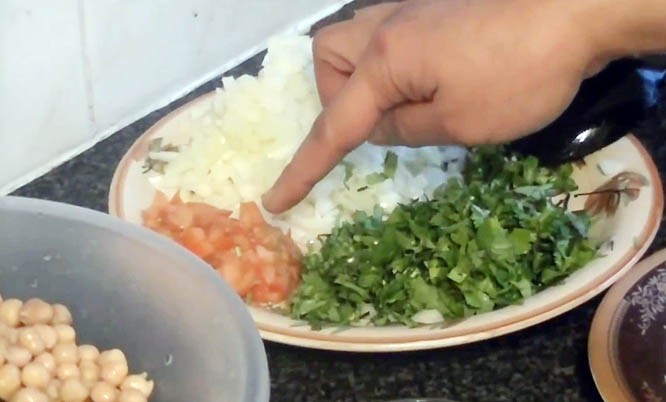
With the ustad-shaagird tradition on its way out, its time to embrace professional training institutes to learn to cook a perfect feast

Rukhsana Khanum, 36, is a divorcee with two children and lives at her brother’s house in Lahore. Her brother works at a mechanic’s shop and earns a monthly income hardly enough to cover their basic expenses. Quite often, Khanum falls out with her sister-in-law who thinks she is a burden on them.
She is often asked to look out for some work and make her own living and if possible rent a separate house to live with her children. Khanum has tried several options like working as domestic help and a home-based tailor but things have not worked for her.
Khanum was clueless for long until she approached the local government representative in her area for help. She was advised to attend the vocational training course in a government-funded training centre situated close to her house. She agreed and opted for a six-month chef course.
The decision was inspired by the advice of the career counsellor employed there and the long list of former students who had found jobs after completion of their courses. She joined the free-of-cost course and completed it too. She was even offered a stipend to cover her travel cost and other expenses.
Khanum has been offered paid internship at the kitchen of a budget hotel and expects she will be offered a job soon. She has not moved from the house but contributes to the collective income -- and cooks good yummy food for the family too. He her relations with her sister-in-law have improved.
Khanum is one example of many aspirants who are opting for formal training and education in culinary arts. One major reason for this is the increase in job and self-employment opportunities in the fast-expanding market.
There are a reasonable number of institutes both in the government and the private sector, offering courses and certifications in this field that carry different price tags. Earlier, people who would learn cooking in the traditional ustad-shaagird environment could easily get jobs but now things are fast changing. The job aspirants are supposed to know a lot more and exhibit their skills at the time of screening and interview. They are expected to have skills to cook and present local, continental and other regional foods.
One institution offering training for such skills is the College of Tourism and Hotel Management (COTHM) which has branches in Karachi and Lahore. A representative of the college says that chefs are also expected to have an understanding of the chemical, biological and physical processes of cooking. Besides, he says, "they must have knowledge of different cuisines, cooking techniques and methods, dietary and nutritional value of different foods, use of latest cooking technology and combination of modern and traditional cooking skills," he says. "The art of presentation is also a must to increase aesthetic appeal of the food served."
The institutes and colleges throughout the country also get their students placed at workplaces to get hands-on training. But for that they are supposed to have secondary school education and must over 18 years old -- the minimum age for employment. Here they get on-job training in menu development and costing, purchasing ingredients, presenting food and minimising wastage.
Waqar Ilyas Khan, Director at Chefs Association of Pakistan (CAP), tells TNS that educated professionals from financially sound families are also acquiring certifications in culinary arts as they want to become entrepreneurs in the food sector. He has many engineers, doctors, IT professionals, and business management graduates as his students who want to open food outlets with their parents’ money or find a job in this sector.
Khan says it was and is still common that master chefs have more salaries in Pakistan and abroad. "That is why even the rich are pursuing studies in this field." Besides, he says, "certified chefs and cooks get jobs in the Gulf region but their salaries are far less than those chefs from Sri Lanka and India. The main reason, he adds, is that Pakistani workforce in the hospitality industry resist to adopt the etiquettes required in this sector.
The traditional ustaads in this sector still have their shaagirds by their side, though their role has changed. Khalid Hussain, a professional cook running his catering company in Lahore, says people’s demands have increased over time, and they want extensive and diverse menus to be served. "The strict regulation and monitoring of food business by government departments also calls for preparation in this regard."
That is why he has got his cooking staff trained in this field from vocational institutes. "Though this is not a compulsion but regulators give weightage to certifications at the time of inspection," he adds.
On employing trained cooks in homes, he says, a very few people go for the certified ones because they refuse to pay them hefty salary. The well-to-do families, he says, "are ready to pay Rs60,000 to a Filipino maid but not pay that amount to a local."
Read also: Editorial
Against this backdrop, the curriculum has been revised according to the market demands under the supervision of the National Vocational and Technical Training Commission (NAVTTC). For example, the curriculum for cooks and chefs stresses avoidance of unsafe behaviour at workplace including, "spitting, smoking, blowing nose, scratching, chewing gum and eating, etc, in order to prevent contamination of food, equipment or work surfaces."
The medium of instruction is both Urdu and English but for employment in the Middle East, some Arabic expressions have also been included in the course. Knowledge of French terminology for the hospitality industry is also considered a plus point and those equipped with it stand a better chance in the job market.